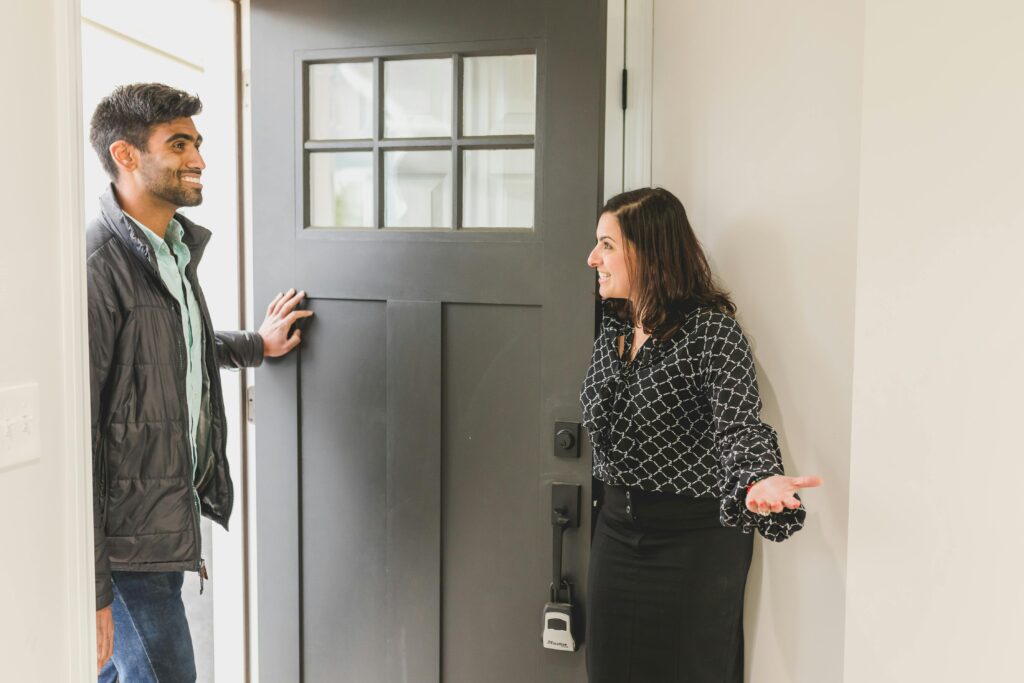Building a new home is one of life’s most exciting milestones, but as your closing date approaches, it’s completely normal to feel a mix of anticipation and uncertainty.
After months of planning, design selections, and construction updates, you’re eager to know one thing: when do you actually close on your new construction home?
Closing marks the official transfer of ownership, but the exact date can vary depending on construction progress, inspections, and your lender’s final approval.
What “Closing” Really Means in New Construction
When it comes to new construction, “closing” doesn’t always happen the moment your home is finished.
Understanding the difference between construction completion and your actual closing date can help you feel more prepared for what’s ahead.
Construction Completion vs. Closing Day
Your construction completion date is when your builder finishes the physical construction of your home. All major features are in place, the finishing touches are complete, and your home is ready for its final walkthrough.
Your closing date, on the other hand, is when the home officially becomes yours. This is the day you sign all the final paperwork, finalize your mortgage, and receive the keys.
There’s often a short window of time between these two dates to allow for final inspections, municipal approvals, and your lender’s last steps in the financing process.
While it can feel like an extra wait, this period ensures every detail is finalized before you move in.
What Happens on Closing Day
Closing is the final legal and financial step that makes your new home officially yours.
You’ll meet with several parties to review and sign the required documents, including your mortgage agreement and title paperwork.
Once the funds are released and documents are signed, you’ll receive confirmation that ownership has officially transferred to you, and that’s when you get your keys.
It’s a big moment, marking the end of construction and the beginning of your life in your new home.
Who You’ll Work With at Closing
Several professionals will help make your closing process smooth and stress-free:
- Your builder representative: Confirms your home meets all quality and contractual standards.
- Your lender: Finalizes your loan paperwork and ensures funds are ready to transfer.
- Your closing agent: Manages the legal transfer of ownership and prepares the closing documents.
- Your realtor (if you have one): Offers guidance, answers questions, and helps you feel confident throughout the process.
Everyone involved shares the same goal, which is to make sure your closing day goes smoothly so you can start enjoying your new home without delay.
What Can Affect Your Closing Date
As your new home nears completion, it’s natural to start counting down the days until you move in.
While everyone involved wants your closing to happen on schedule, a few factors can sometimes shift your timeline.
Weather and Material Delays
Even with careful planning, the weather can occasionally slow things down. Heavy rain, snow, or extreme temperatures may delay exterior work such as roofing, driveways, or landscaping.
Similarly, supply chain challenges can sometimes impact the delivery of materials or fixtures.
When these things happen, your builder will adjust schedules and work efficiently to get your home back on track while maintaining the quality you expect.
Inspections and Permits
Before you can close, your home must pass final inspections and receive all required approvals from local authorities. These inspections confirm that your home meets all building codes and safety standards.
Sometimes, inspectors’ schedules or municipal processing times can affect when final approvals are issued, but your builder will monitor progress and communicate any updates promptly.
Lender or Appraisal Delays
Your lender and appraiser play an important role in determining your closing timeline.
The lender must complete a final review of your mortgage documents, while an independent appraiser verifies the home’s value before the loan can be finalized. For new construction, appraisers often rely on recently built comparable homes or builder-provided cost breakdowns.
If additional documentation or follow-up is needed, this step can take a few extra days. Staying in close contact with your lender and promptly providing any requested information can help keep your closing on track.
Finishing Touches
In the final stage of construction, small details such as touch-up paint, flooring adjustments, or landscaping are completed to ensure your home is move-in ready.
Occasionally, your builder may adjust your closing date slightly to make sure everything meets their quality standards before you receive your keys.
It’s all part of delivering a finished home you’ll be proud to call your own.
How to Prepare for Your Closing
As your new construction home nears completion, preparing for closing can help make the process smooth and stress-free.
Taking a few proactive steps ensures you’re ready to sign your paperwork, finalize your mortgage, and get your keys without surprises.
Here’s a checklist to guide you through the final steps before closing:
1. Confirm Your Financing
Make sure your mortgage is fully approved and your funds are ready. Check in with your lender to verify that all conditions have been met and that your Closing Disclosure is accurate.
2. Schedule Your Final Walkthrough
Before you close, walk through your home to confirm that everything meets your expectations. Check that all installations are working, finishes are complete, and any items noted during construction have been addressed.
3. Review Your Documents
Take time to read through your contract, loan paperwork, and closing documents ahead of time. Understanding what you’re signing will help you feel confident on closing day.
4. Arrange Home Insurance
Your lender will require proof of homeowners’ insurance before closing. Make sure your policy is active and covers your new home starting on your closing date.
5. Stay in Communication
Keep in touch with your builder, lender, and closing agent. Promptly respond to any requests for information or documentation to prevent last-minute delays.
Following these steps can help you feel prepared, confident, and ready to enjoy the exciting milestone of moving into your new home.
Shane Home’s Commitment to a Smooth Closing Experience

Even with careful planning, the final steps of closing can feel overwhelming at times. Inspections, paperwork, and coordinating with your lender and title company may seem like a lot to manage, but you don’t have to navigate it alone.
At Shane Homes, we are dedicated to making your closing process straightforward and stress-free.
Our Community Managers work closely with you, your lender, your realtor, and your closing agent to keep timelines on track, answer your questions, and address any last-minute details.
By staying organized and keeping you informed at every stage, we help ensure that your closing goes as planned so you can focus on what really matters: moving into your home and starting the next chapter with confidence.
Contact our Community Managers to learn more about our new construction homes.







